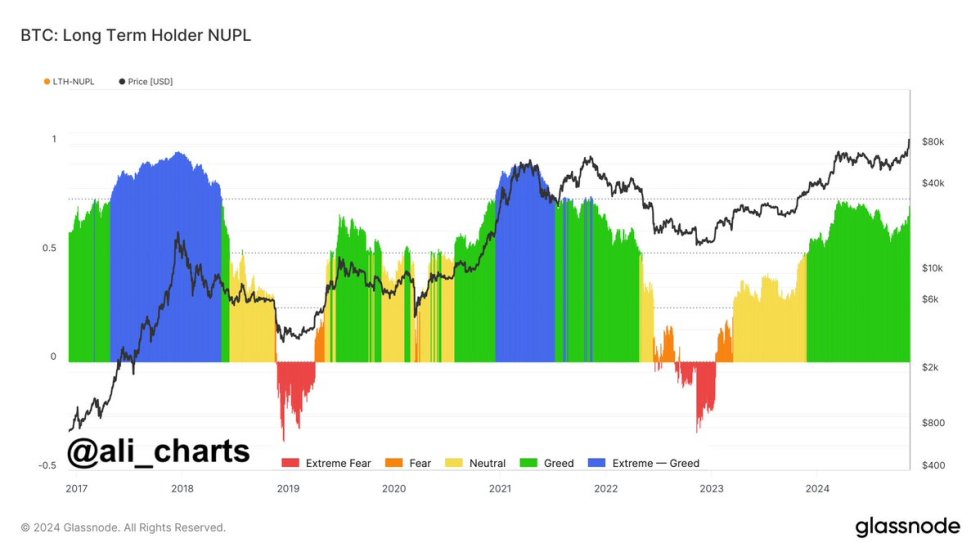<p>The FTX debacle, coming at the end of a testing year, has caused a sense of crisis in the crypto world, from which, broadly, two camps emerge. One is optimistic and takes a long-range perspective, while the other insists that regardless of your timeframe, this storm is categorically different.</p><p>The Upbeat Case</p><p>According to this view, we genuinely are in an era of significant technological change, and at the center of that shift is a new iteration of money, finance, and the web, based around cryptocurrencies and blockchain technology.</p><p> From this perspective, should we be concerned about the implosion of FTX, and the wildly reckless, possibly stimulant-exacerbated behavior displayed at the top levels of its management?</p><p> In the short-to-medium-term, yes, we probably should care. There will be serious, ongoing consequences, there are lessons to be learned and changes to be made, and when it comes to extending sympathy to those harmed, absolutely, we should be generous.</p><p> But, equally, at the frontiers of any new technological expansion, there will be eccentric behavior that veers across established boundaries, along with explosive bubbles, and raised levels of speculation.</p><p> In a recent blog post, Antonio Garcia Martinez, tech veteran and author of Chaos Monkeys, a best-selling insight into Silicon Valley, tech culture, and venture capital, colorfully summarized, partly from historical parallels and partly from his own experience, the reality of such moments:</p><p> “Technological progress has always been driven by bubbles led by lunatics. The cover photo above [viewable in the <a href="https://blog.spindl.xyz/p/the-ftx-freakout">original post</a>] is of the mayhem surrounding the South Sea Bubble which wrecked none other than Isaac Newton; the end result was royal regulation of joint-stock companies….what we’d now call corporations. Innovation starts in mad genius and grift and bubbles, and ends in establishment institutions that go on to reject the next round of mayhem.”</p><p> And, Garcia Martinez goes on to observe that,</p><p> “Everything you see now has happened before, and it’ll happen again. The script is the same, just the casting and props change.”</p><p> This seems not to suggest that what happened at FTX is okay, not by a long shot, and it can be assumed that if we have any remaining trust in our systems, there will be repercussions for those involved at the top (although admittedly, not everyone does have trust in our systems, and <a href="https://www.financemagnates.com/tag/crypto/" target="_blank">crypto</a> was supposed to be a remedy for at least part of that problem).</p><p> However, what’s indicated by this very zoomed-out reading of events at FTX is that while what happened there is messy and destructive, it is not more than a sub-plot within a much larger, and overall more optimistic storyline that cannot be derailed, and certainly not by single agents (as the FTX wreck mainly comes down, in the end, to the former-CEO, Sam Bankman-Fried and the corruption he oversaw).</p><p> Additionally, the out-of-the-ordinary aspect of the FTX scandal is actually, in essence, not without historical precedent. Such shocking tales have occurred before, in a variety of contexts, and we are not dealing with an apocalyptic, crypto-destroying event.</p><p>The Downcast Take</p><p>The counter-view is that, well, we are dealing with an apocalyptic, crypto-destroying event. This view emphasizes the possibility that institutional investors and VCs become, as a result of 2022’s crypto collapses, and culminating (so far) in FTX, irretrievably jittery around crypto.</p><p> By this reckoning, monied investors develop crypto-PTSD and will run for cover at the mere mention of <a href="https://www.financemagnates.com/tag/blockchain/" target="_blank">blockchains</a> or decentralization, meaning, as a result, that substantial web3 funding reverses course.</p><p> Ultimately, the money runs out, crypto valuations go into freefall, and, as crypto has relied to a large extent on rising prices to attract newcomers, activity declines, with regard not only to institutional investors and retail buyers but also the blockchain developers at the heart of it all, who migrate back to reliable, safely centralized web2 environments.</p><p> This scenario does not require that blockchains are wiped forever from the digital realm but suggests that they will revert to niche status, with niche applications, niche user-communities, and correspondingly downsized valuations.</p><p> What makes this an end-of-the-road scenario, as opposed to a regular old bear market moment, is that it posits the situation not as a reset from which to resume the upward climb but as a permanent state of affairs.</p><p>From this point-of-view, crypto took aim, overshot and got cocky, and now it rebounds back to its rightful place: not nothing, but not the historical new paradigm it was briefly sold as, either.</p><p> It’s a coherent proposition, but the problem with the doom-laden, or detachedly pragmatic, thesis is that almost any bear market capitulation can appear roughly that bleak, because advanced pessimism, by definition, is what capitulation requires: if enough participants don’t give up completely amid an almost-total collapse in conviction, then a lower low is still on the table.</p><p>Familiar Timing</p><p>On balance, one persistently familiar factor indicating that rebuilding should occur is the timing of current events. Those who track <a href="https://www.financemagnates.com/tag/bitcoin/" target="_blank">Bitcoin’s</a> four-year halvings have predicted unwaveringly that the current or soon-incoming lowest point for crypto should occur towards the end of 2022.</p><p> Although a specific trigger for the final capitulation wasn’t specified, the idea that there could be a (temporarily) devastating event to finally put paid to the bullish excess of the previous couple of years was widely touted, and, as it happens, FTX appears to have provided the called-for finale (with the caveat that there could still be further shocks in store).</p><p> Incompatible Systems?</p><p>It seems strange that something focused on transparency and decentralization (crypto) should be forced ill-fittingly into opaque and strongly centralized systems (platforms such as <a href="https://www.financemagnates.com/tag/ftx/" target="_blank">FTX</a> and <a href="https://www.financemagnates.com/tag/Celsius/" target="_blank">Celsius</a>).</p><p> Crypto must exist on its own terms if it is to mean anything at all, so perhaps it should be no surprise that the current bear market has pressured centralized crypto entities into collapsing under the weight of their own recklessness and duplicity. Crypto was, by its nature, not intended to slot in obligingly with existing ways of operating.</p><p> The period just navigated feels now like it was a transient phase: the years that crypto pretended to be something it wasn’t, or rather, that some fast-moving opportunists pretended crypto was something it wasn’t, and it ended with a few lessons: allow crypto to operate as intended, or it might wipe you out, and be skeptical of anyone positioning themselves as though they can assume stewardship of things that have no center.</p>
This article was written by Sam White at www.financemagnates.com.

You can get bonuses upto $100 FREE BONUS when you:
💰 Install these recommended apps:
💲 SocialGood - 100% Crypto Back on Everyday Shopping
💲 xPortal - The DeFi For The Next Billion
💲 CryptoTab Browser - Lightweight, fast, and ready to mine!
💰 Register on these recommended exchanges:
🟡 Binance🟡 Bitfinex🟡 Bitmart🟡 Bittrex🟡 Bitget
🟡 CoinEx🟡 Crypto.com🟡 Gate.io🟡 Huobi🟡 Kucoin.



















Comments